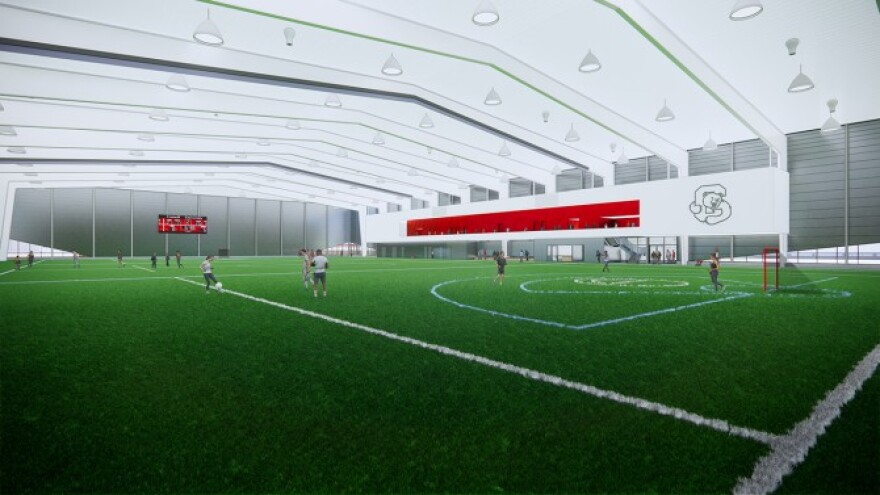The city of Ithaca is considering whether to approve Cornell University’s plans to install new artificial turf fields, drawing concern from environmental groups who say the proposal poses numerous health and pollution concerns.
The university intends to use artificial turf, a kind of plastic alternative to grass, for separate indoor and outdoor fields at a new sports facility, according to its application to the city of Ithaca's planning board.
The application documents state that artificial turf is the only option that would meet the university’s performance, safety and durability requirements, as it addresses the growing need for practice space on campus.
But several environmental groups, led by Zero Waste Ithaca, are calling on the university to halt its plan due to concerns over plastic pollution and health risks.
“Plastic turf is a fossil fuel product,” said Yayoi Koizumi, the group’s founder. “It has problems throughout its life cycle, from extraction, manufacturing, transportation, in use and at disposal.”
Research indicates that artificial turf fields can cause plastic pollution and may be a source of PFAS, or “forever chemicals”. Scientists are currently studying whether artificial turf exposure could pose a risk to human and environmental health. They say more research is necessary to understand the impact.
At a webinar on the issue Zero Waste Ithaca hosted in April, Kyla Bennett, who directs science policy at the nonprofit Public Employees for Environmental Responsibility, said artificial turf also contributes to climate change.
“Natural grass will absorb carbon dioxide and release oxygen — artificial turf does the opposite,” Bennett said. “If your town or your university cares at all about climate change, they should not be putting in plastic grass fields.”
National sports data also indicates that certain types of injuries are more likely on turf fields.

Application filings from Cornell state that the facility, which is slated to cost $55 million, will support student physical and mental health. It expects the turf fields to be used year-round for sports practice and other activities.
The university’s filings say the proposed artificial turf fields will last 8-10 years, after which parts will be reused or recycled. However, the process of recycling artificial turf has come under scrutiny in recent years as some processors have failed to make good on their recycling promises. Neither of the recycling companies Cornell plans to use have been the subjects of previous investigations.
Kimberly Michaels, who works for the firm Cornell has contracted with to design the new facility, represented the university at a planning board meeting last month. She said the use of artificial turf is justified by its long operational season and ability to “repair itself.” While a grass field may be muddy most of the year, artificial turf can be used year-round.
“Absolutely we should, as a community, be thoughtful about when we’re using plastics and reducing it where we can,” Michaels told the planning board. But she said the concerns Zero Waste Ithaca and other environmental advocates presented at the group’s webinar were overblown. “They jump to conclusions and they make one study presented as if it's like the whole world’s study,” she told the planning board.
Cornell did not respond to WSKG’s questions about community concerns over health and pollution risks from artificial turf.
At a meeting of the city’s project review committee Friday, planning board chair Mitch Glass said the board will continue to review the university’s application at its next meeting on June 25. There will also soon be a public hearing on the proposal.


